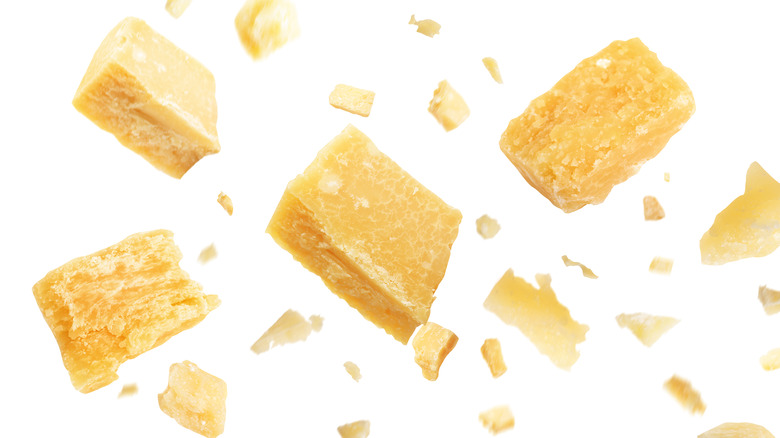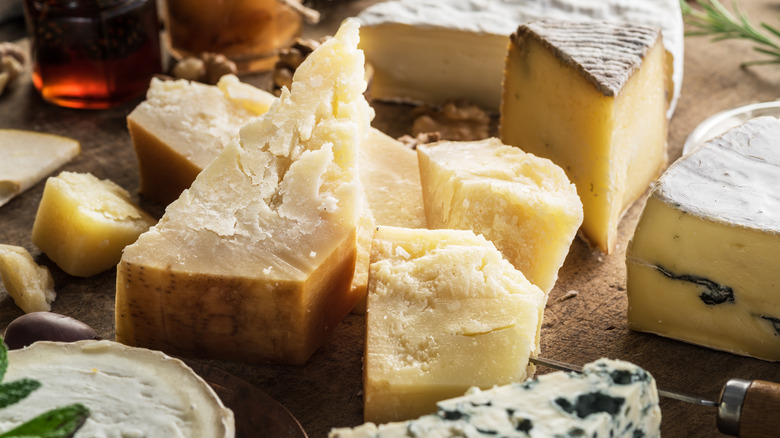Parmesan Cheese Isn't Vegetarian. Here's Why
We may receive a commission on purchases made from links.
Whether it's mixed in with cacio e pepe, plated on a charcuterie board, or shaved over a Caesar salad, the addition of Parmesan cheese can instantly elevate the flavor profile of any dish from bland to bold. The Italian hard cheese is typically used for grating, shares The Spruce Eats, and refers to the Italian term for grain: grana. While there are a few different types of Parmesan, the "king of cheeses," as it's been called, is Parmigiano Reggiano. Named for the Parma and Reggio areas of Italy where it is traditionally produced, the exclusive cheese must be "matured" for at least 12 months and made with cow's milk, salt, and an ingredient called rennet in order to classify as the real stuff.
The unassuming ingredient rennet, an enzyme found in animals, however, is what makes this hard cheese — and a slew of others that contain it — off-limits to vegetarians (via Allrecipes).
Parmesan cheese isn't the only one to contain rennet
While vegetarians may assume Parmesan and other aged cheeses are safe to consume, it's important to examine how they're produced. Parmesan cheese is made using rennet, an enzyme used to set cheese which comes from the stomach of animals like calves, goats, or lambs, according to Allrecipes. As rennet is not possible to extract without harming the animal, its use traditionally disqualifies cheese from being vegetarian-friendly.
Rennet is extracted by taking a piece of stomach and dropping it into saltwater or whey paired with an acidic ingredient to "draw out the enzymes," Allrecipes explains. And rennet is a must in order to classify as a true Parmigiano Reggiano cheese, along with cow's milk and salt, according to the European Union's legal definition. Parmasean isn't the only cheese this ingredient is used in — vegetarians may also want to hold the cheese if varieties like Gorgonzola, Pecorino Romano, Camembert, Gruyère, and Manchego are offered, as they also traditionally contain rennet, shares Business Insider.
Still, there are plenty of cheeses suitable for vegetarians, but to be sure, read your food label. The phrase "microbial enzymes" can signal vegetarian-friendly cheeses, as well as "vegetable rennet," which means the rennet used comes from a plant. Brands like Cabot, Applegate, and Laughing Cow are typically a safe bet when it comes to vegetarian cheeses (via Vegetatio).

